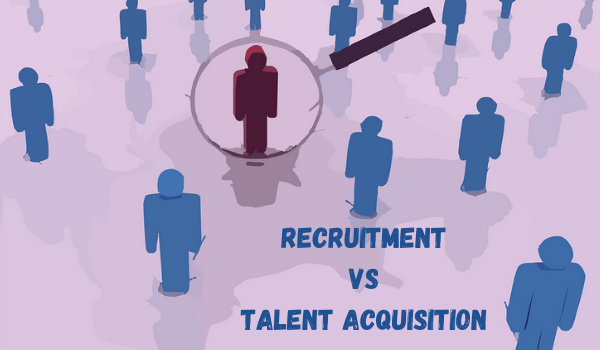Back in the days of industrial relations (IR), human resources (HR) was generally referred to as personnel management, and HR managers were called personnel managers or officers. However, over time, ‘personnel management’ evolved into ‘human resource management’ and now it has further transformed into people strategy.
Similarly, businesses in the past merely recruited people on need basis, to fulfil immediate or current goals. Now, however, the talent landscape has changed totally. If we compare it to the factory era, the game has simply turned over its head.
Earlier, it was difficult to find employment opportunities but now, options are unlimited and businesses are finding it difficult to draw talent. Businesses have also had to change themselves and come up with new ways to not just source and recruit people, but also build a strategy around this activity, known as ‘talent acquisition’.
Most often, we use the term ‘recruitment’ and ‘talent acquisition’ interchangeably, but they have two different meanings.
“For roles which are specialised and also for leadership positions, a strategy is a must, because filling such positions requires time, and therefore, a long-term strategy”
Rajeev Singh, CHRO, Solara Active Pharma Sciences
Recruitment is the process of sourcing, screening and hiring someone for a vacant position. It is aimed at fulfilling the immediate needs of the business, and is very reactive and tactical in nature.
Talent acquisition, on the other hand, is a much broader term. By nature, it is more strategic in nature where the organisation formulates a talent-acquisition plan, builds relations with the existing talent in the market and hires people with a long-term strategy in mind and not just to fill a position immediately.
For instance, the shortage of talent in the tech space is a known fact. Many tech firms today are finding it challenging to draw good talent. Experts point out that hiring techies takes much longer. Therefore, an organisation needs to plan ahead for anticipated projects from clients. They have to figure out how they will hire people immediately when projects are bagged.
For this, one needs to have a well-defined talent-acquisition strategy in place, to predict the kind of skills one would need to fill future job roles and how suitable talent would be procured. Serious thought has to be given to whether one would hire fresh talent and further train them or hire experienced professionals who can start delivering from the work ‘go’.
“Recruitment used to be more of a traditional way of hiring people, just to fill positions without any long-term strategy in mind,” says Rajeev Singh, CHRO, Solara Active Pharma Sciences.
The long-term benefits of talent acquisition are more sophisticated, strategic and attractive in nature. Therefore, businesses would want to have a full-fledged talent-acquisition strategy in place rather than just recruit people.
“Many back-end roles or support staff positions at workplaces are filled on an immediate need basis and do not require much evaluation”
Anil Mohanty, head – people & culture, Medikabazaar
But are there any instances where a recruitment mindset becomes more important? If we speak of the more specialised and sophisticated roles, where skilled talent is quite rare and in short supply, a talent-acquisition strategy becomes a necessity. “For roles which are specialised and also for leadership positions, a strategy is a must, because filling such positions requires time, and therefore, a long-term strategy,” says Singh.
There are, however, some position or skills which are easy to find in the market. “Many back-end roles or support staff positions at workplaces are filled on an immediate need basis and do not require much evaluation,” points out Anil Mohanty, head – people & culture, Medikabazaar.
Not surprisingly, therefore, even the roles or the mindsets of recruiters and talent-acquisition specialists differ, while hiring. Recruiters may simply look at the CV and check for the basic criteria that match — such as years of experience and qualifications — but new-age talent acquisition specialists will assess the skills of the candidates, completely ignoring the qualifications or the number of years of experience. They may even hire someone on the basis of their attitude and take a chance on building skills, which can prepare the individual to fit the role in some time.
“A talent-acquisition professional would look at the individual as talent and not just as a worker, and hire holistically, examining all aspects including culture fit,” shares Mohanty.
Many HR professionals who come from the IR days and manufacturing era, have failed to transform themselves or even understand the new-age HR and talent. This only makes it more difficult for them to comprehend the difference between recruitment and talent acquisition. Businesses today, need to make a wise decision at this stage and ask themselves, ‘Are we recruiting or acquiring talent’?
Value our content... contribute towards our growth. Even a small contribution a month would be of great help for us.
Since eight years, we have been serving the industry through daily news and stories. Our content is free for all and we plan to keep it that way.
Support HRKatha. Pay Here (All it takes is a minute)




































